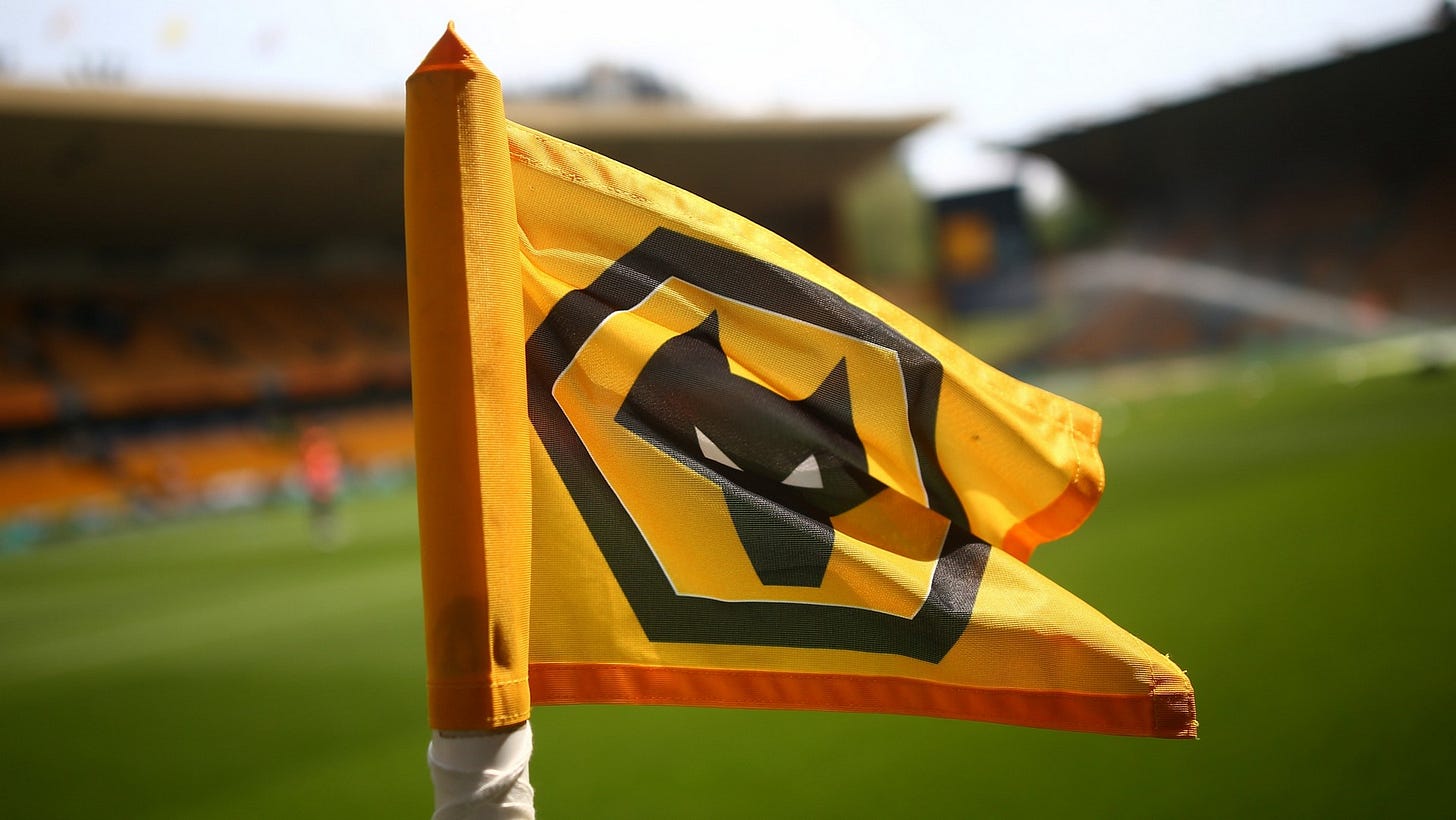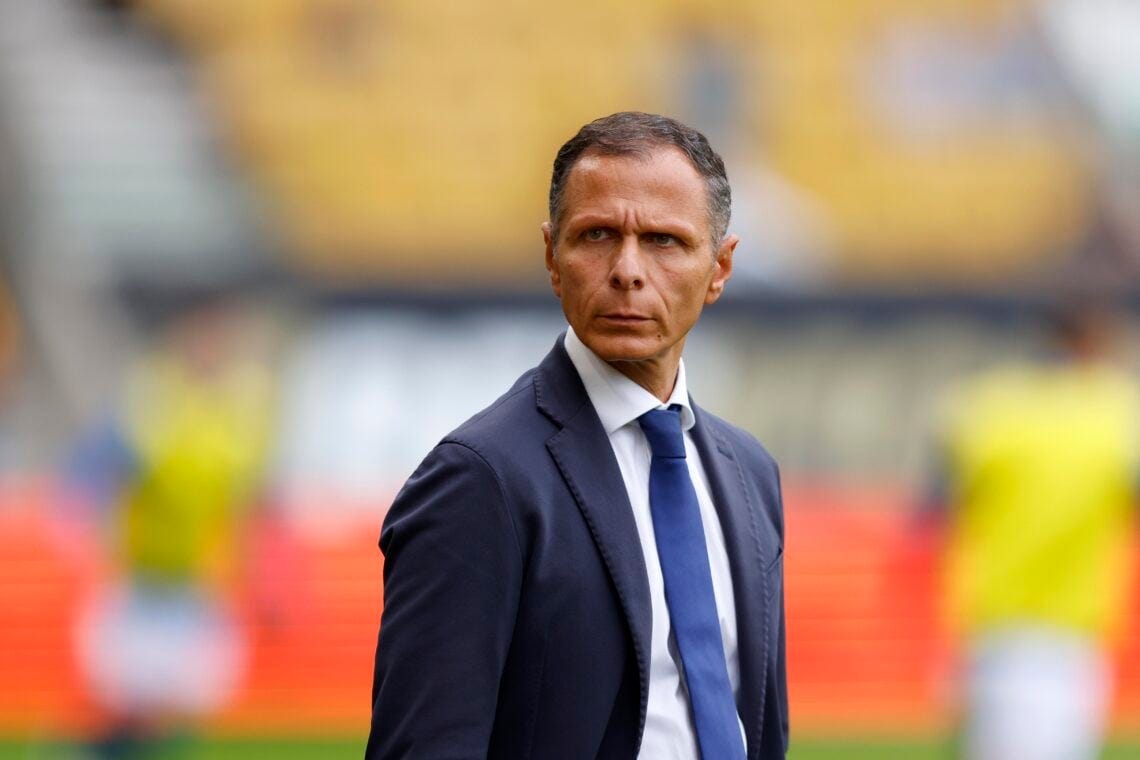Wolves in Freefall, Ownership Drift and a Club on the Brink
Boardroom chaos and poor recruitment have left Wolves staring at the drop
Wolverhampton Wanderers are a club spinning their wheels in quicksand. What was once a modern success story of ambitious Chinese ownership, clever recruitment and a meteoric rise to European football has now curdled into a cautionary tale of mismanagement, stagnation and institutional apathy.
Fosun’s stewardship of Wolves is collapsing in on itself. The departure of yet another sporting director, the chaotic revolving door of head coaches and the alarming decline in squad quality are not isolated incidents. They are symptoms of a club that has lost its identity, its direction and its will to compete. At a time when clubs like Brighton and Aston Villa are surging ahead with clear strategies and sharp execution, Wolves are trapped in neutral, edging dangerously close to relegation and irrelevance.
Ownership Has Lost Its Nerve
The rot starts at the top. Fosun, once hailed for their ambition and savvy, now look like absentee landlords desperate to sell a decaying asset before it collapses in value. Their investment in Wolves began with bold promises, challenging the top six, stadium expansion, commercial growth, a model club built around Portuguese talent and Mendes connections.
But those promises have quietly died. The planned stadium rebuild has vanished. Commercial strategy is non-existent. Their former multiclub ambition, including ownership of Grasshopper Zurich, has been scrapped. Even Jorge Mendes’ influence, once their golden ticket to elite-level talent, appears diminished or directionless.
The club now sits rudderless, lacking a CEO with footballing nous and saddled with Jeff Shi making erratic decisions despite admitting when he arrived that he knew nothing about football. That ignorance is no longer an excuse. It is a liability that has poisoned every corner of Molineux. His public remarks, including the baffling suggestion that Wolves fans should not expect European football or trophies, are emblematic of the contempt and confusion at boardroom level.
Recruitment Strategy Is A Disaster
This summer’s transfer window encapsulates Wolves’ dysfunction. The sales of Matheus Cunha and Rayan Aït-Nouri were understandable from a financial perspective, but the replacements brought in were, frankly, not fit for purpose. None had Premier League experience. None have proven they are capable of lifting the team out of the mess it is in. Players like Jhon Arias and David Møller Wolfe have looked completely out of their depth. It is painfully obvious that this squad is ill-equipped to stay in the Premier League.
The scattergun nature of the recruitment points to a deeper problem. Wolves are not just signing the wrong players, they are signing them without a clear idea of what kind of football team they want to be. There is no alignment between manager, playing style and recruitment strategy. That is how you end up with a bloated, unbalanced squad and a head coach like Vítor Pereira failing to get a tune out of any of it.
The appointment of Domenico Teti as director of football, closely linked to Pereira, only underlines the confusion. When he departed after barely four months, it became yet another chapter in the revolving door of technical staff. The football department lacks continuity, clarity and credibility. It is no wonder Gary O’Neil, already sacked by Wolves, turned down the chance to return. He knows better than anyone how broken the internal structure is.
The Football Is As Bad As The Results
Two points from ten games. Bottom of the table. No wins. Fewest goals scored. Most goals conceded. Wolves’ on-pitch performances are not just poor, they are predictable in their failure. This is not a team losing games against the league’s elite. They have been outplayed by fellow relegation candidates like Fulham, Burnley and Leeds.
There is no energy, no creativity and no defensive stability. The squad looks mentally drained and tactically lost. The fans see it, and they are voting with their feet. For the first time since 2017, Molineux is no longer a sell-out. The atmosphere has soured into apathy.
Even the statistical analysis offers little comfort. Expected goals and expected goals against suggest marginal improvement, but it is clutching at straws. A team without belief or clarity is never far from collapse, and this one feels perilously close.
This Is No Longer About Just Survival
Relegation would be a disaster, both competitively and financially. Wolves’ model relies heavily on broadcast revenue, which makes up over 70% of their income. Drop out of the Premier League and you halve the club’s valuation overnight. Fosun know it. That is why they are scrambling behind the scenes to attract buyers, despite insisting publicly that they only want to sell a minority stake.
But Wolves’ problems are not just about staying up. They are about who they are and what they stand for. Right now, they stand for nothing. They have no footballing identity, no strategic plan and no leadership. Fosun’s ownership has decayed from adventurous to cowardly. What started with grand designs has ended with a club in managed decline, waiting for someone else to bail them out.
Jeff Shi has become the lightning rod for fan anger, and rightfully so. His fingerprints are on every bad decision made in the last three years, the endless churn of coaches, the disjointed recruitment, the abandonment of the stadium rebuild and the increasingly bizarre public comments. If Fosun are serious about salvaging any goodwill, they need to remove him immediately. Whether they are staying or selling, they must hand over control to someone who understands football and understands Wolverhampton Wanderers.
Final Thoughts
Wolves are not yet beyond saving. The Premier League season is only ten games old. The right manager, a tactical reset and a little luck could be enough to keep them up. But this club’s problems are bigger than results. They are cultural, structural and existential.
Fosun have the power to arrest the decline. Either invest properly and recommit to the club’s future, or sell up and let someone else take on the job of rebuilding a proud institution. The current limbo is the worst possible option. Drift is not just failure. It is slow death.
Until there is clarity at the top, Wolves will continue to sink. And for a club with such rich history and passionate support, that is a betrayal of everything they should stand for.




Will Leeds stay in the premier league and will Daniel farke be Leeds united come what the next premier league game